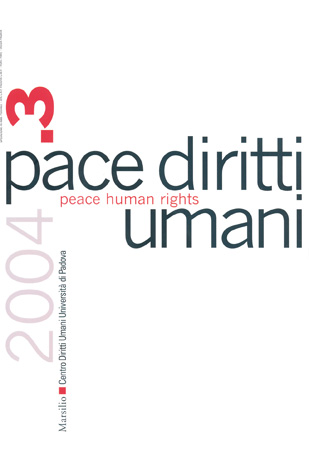Collections

La sfida del "coordinamento" nel sistema Nazioni Unite: riequilibrare i "capitoli" della Carta riguardanti il Consiglio di Sicurezza e il Consiglio Economico e Sociale (ECOSOC)
- Contained in
- Pace diritti umani - Peace Human Rights, 3/2004
- Pubblication type
- Articolo / Saggio
- Pages
- 103 - 114
- Language
- IT
The challenge of «co-ordination» in the United Nations system: rebalancing the Charter’s Economic and Social Council (ECOSOC)
Antonio Papisca
The importance of ECOSOC has been for long time underestimated, notwithstanding the magnitude and the substantive importance of the field covered by its competences: economic and social development, human rights, consultative status of NGOs, etc. ECOSOC functions and powers are absolutely inadequate to cope with the challenges stemming from the globalisation processes. Co-ordination, the main function assigned to ECOSOC by the UN Charter, cannot actually be pursued only by the soft way of «recommendations». Powerful institutions, such as the International Monetary Fund or the World Bank or the World Trade Organisation, continue to be out of any significant control. This situation cannot but enhance the damaging strategy of economic and institutional de-regulation. One can wonder why so many powers for the Security Council, and so few for the ECOSOC. To enable ECOSOC to function as a true «Council for economic, social and environmental security», reference should be made to the paradigm of «all human rights for all», especially to the principle of interdependence and indivisibility of human rights. Its empowerment should be pursued as strictly linked with the destiny of the Security Council. To carry out a real reform of the United Nations in the direction of strengthening and democratising, it is indispensable to balance the two main «thematic blocks» of the Charter dealing respectively with human security and human development. This perspective should be at the core of the debate on the reform, the success of which will heavily depend on overcoming the sterile practice of «panels», «eminent personalities reports», etc. To speed and make credible the reform process, the author’s establish an ad hoc «plural» body, a «Global Convention for Strengthening and Democratising the UN» following the example of the «European Conventions».

